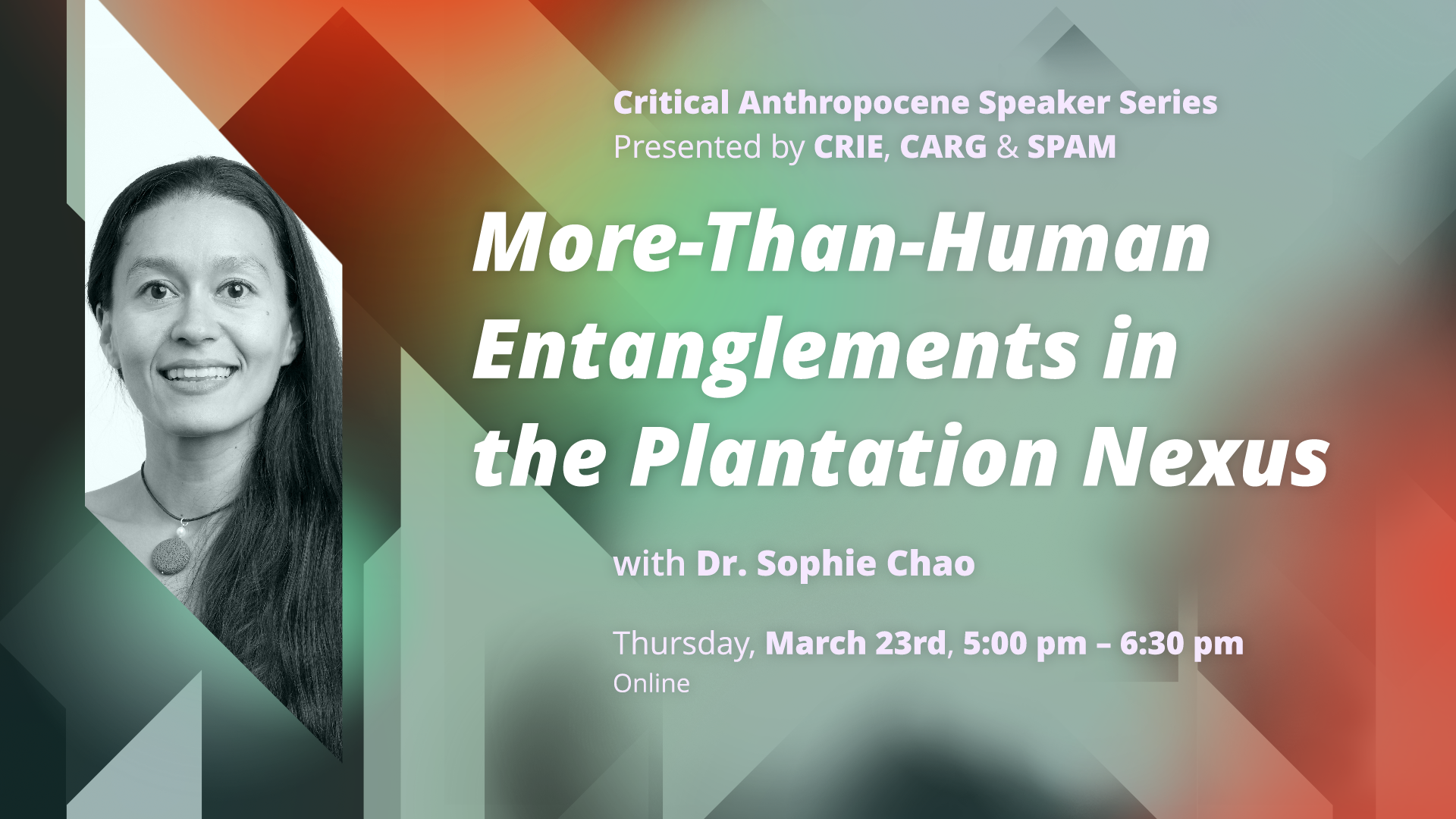
- This event has passed.
Dr. Sophie Chao: More-than-Human Entanglements in the Plantation Nexus
2023-03-23 | 17:00 - 18:30

Join us for the fourth instalment in a series of talks planned collaboratively by the Critical Anthropocene Research Group (CARG), Colonialism Race and Indigenous Ecologies (CRIE), and Society, Politics, Animals and Materiality (SPAM). The Critical Anthropocene Speakers Series will feature an online talk with Dr. Sophie Chao.
Recent years have seen a resurgence of anthropological interest in the topic of the plantation–an industrial formation and enduring logic that has been instrumental to the rise of colonial racial capitalism and the construction of modern nations and natures.
In this talk, Chao will draw on long-term fieldwork conducted on the West Papuan oil palm frontier to examine how Indigenous Marind communities experience, theorize, and critique the impacts of plantation modernities on their rapidly changing lifeworlds.
Central to these experiences and theories, the talk will illustrate, are an array of more-than-human actors whose meaning, mattering, and morality are shaped by their alternately indexical, antagonistic, or ambiguous relationship to Marind themselves.
Set against the backdrop of West Papua’s regional history of settler-colonial incursion and the plantation’s global history of racializing violence, the paper will argue that Marind philosophies of more-than-human becoming constitute a form of epistemic resistance to the simplifying, hierarchizing, and disciplining logic of plantation regimes past and present.
About the speaker
Sophie Chao is Discovery Early Career Researcher Award (DECRA) Fellow and Lecturer in the Discipline of Anthropology at the University of Sydney. Her research investigates the intersections of Indigeneity, ecology, capitalism, health, and justice in the Pacific.
Chao is author of In the Shadow of the Palms: More-Than-Human Becomings in West Papua and co-editor of The Promise of Multispecies Justice. She previously worked for the human rights organization Forest Peoples Programme in Indonesia, supporting the rights of forest-dwelling Indigenous peoples to their customary lands, resources, and livelihoods. For more information, please visit www.morethanhumanworlds.com.
